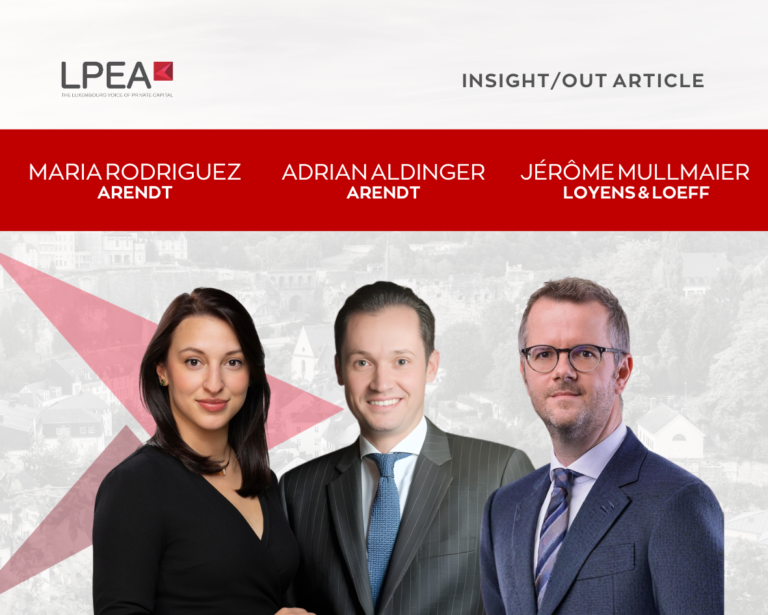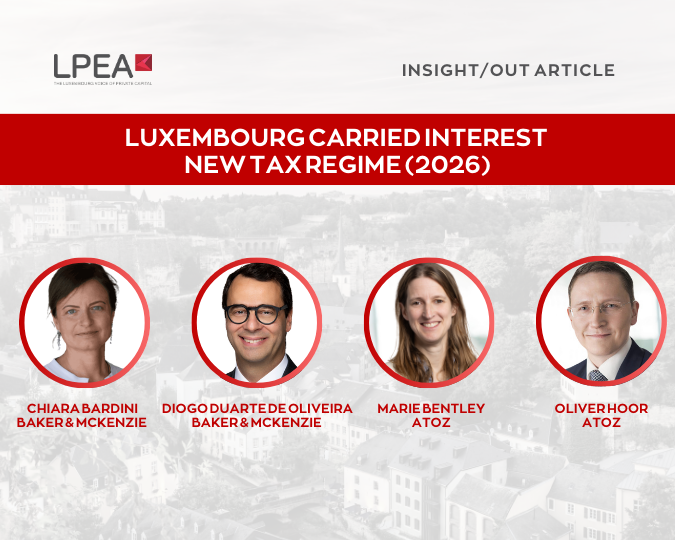BY:
Pierre-Régis Dukmedjian, Partner, Simmons & Simmons Luxembourg LLP
Nadejda Girleanu, Managing Associate, Simmons & Simmons Luxembourg LLP
Eléonore Delville, Associate, Simmons & Simmons Luxembourg LLP
On 8 January 2021, the Luxembourg tax authorities released the circular LITL n°168bis/1 (the “Circular”) with respect to the interest limitation rule introduced in the Luxembourg Income Tax Law (“LITL”) through the law of 21 December 2018 (“ATAD Law”).
As a reminder, under article 168bis LITL, tax deductions for exceeding borrowing cost are limited to 30% of the fiscal Earnings Before Interest, Tax, Depreciation and Amortisation (“EBITDA”) or up to an amount of EUR 3,000,000, whichever is higher. In other words, the taxpayer whose exceeding borrowing costs do not exceed EUR 3,000,000 can deduct said costs without any limitation.
These rules are of importance for private equity funds which regularly finance their investments by using debt financing.
The Circular confirms that such interest limitation rule (the “Rule”) does not make any differences between borrowing costs contracted domestically, at a EU Member State or third country level. Further clarifications provided by the Circular are detailed below.
The concept of Borrowing costs
According to the Circular, ‘borrowing costs’ are divided into three categories:
- interest expense on any type of debt;
- other costs economically equivalent to interest; and
- expenses borne in the context of financing.
Only borrowing costs that are tax deductible should be considered to determine the exceeding borrowing costs. Hence, it should be first checked if any tax provision other than the one provided by the Rule could lead to a total or partial denial of the tax deductibility of an expense. In short, if an expense based on this analysis is not tax deductible, the latter cannot be considered as a borrowing cost.
It is as well important to note that any transfer pricing adjustment in relation to borrowing costs should be taken into account for the application of the Rule.
While interest expenses are defined in the ATAD Law, interest income remained unaddressed. The Luxembourg tax administration takes the position that a symmetrical approach should be taken, i.e. interest and other income economically equivalent to interest should constitute the counterpart of the borrowing costs as defined by the ATAD Law.
Fiscal EBITDA
The taxpayer’s EBITDA is equal to the total net income increased by the exceeding borrowing costs, amortisations and deductions for depreciation calculated. The Circular specifies that the exempt income of the taxpayer should not be taken into account for the determination of its fiscal EBITDA.
Grandfathering clause (June 17, 2016)
The Rule provides for a grandfathering clause covering loans contracted by companies before 17 June 2016, to the extent that the terms and conditions of such loans remain unchanged from 17 June 2016. It follows that in the event of a subsequent modification in a loan after 17 June 2016, the grandfathering clause will only apply to the initial terms and conditions of the loan as they were set before that date.
In principle, the following changes, which are not exhaustive, should not to be considered as a subsequent modification of a loan concluded before 17 June 2016:
- modification of the term of the loan as of 17 June 2016, where such modification was contractually foreseen before 17 June 2016 and does not require the agreement of the parties concerned, but arises from the implementation of the loan;
- modification of the interest rate or the calculation of interest from 17 June 2016, when such modification was contractually foreseen before 17 June 2016;
- draw-downs from a credit line from 17 June 2016 under a credit agreement entered into prior to 17 June 2016 in accordance with the terms and conditions of this agreement and in particular up to the maximum amount of credit provided before 17 June 2016;
- transfer to Luxembourg of the registered office or central administration of an entity that is a party to a loan entered into prior to 17 June 2016 without being any modification of the terms and conditions of the loan.
Long-term public infrastructure projects
The Circular provides some details with respect to the public infrastructure projects for which, under conditions, exceeding borrowing costs are out of the scope of the Rule.
Precisions on financial undertakings and participations in tax transparent entities
A financial undertaking should not fall within the scope of the Rule. Companies which are not regulated by a European Directive or Regulation are not covered by this definition, except for the investment company in risk capital (known as “SICAR”).
Finally, the Circular provides that where the Rule applies to a taxpayer who holds a participation in a transparent entity for tax purposes, whatever the nature of the activities carried out by such entity, the taxpayer realises in proportion to the fraction held in this entity, the deductible borrowing costs, taxable interest income and other taxable income economically equivalent of that entity.
Although some points might remain open, the Circular gives useful insights for PE and VC players on the application of the Rule. Taxpayers should ensure that they are up to date with the new clarifications provided by the tax administration, as it could have an impact for fiscal year starting as from 1 January 2019.




